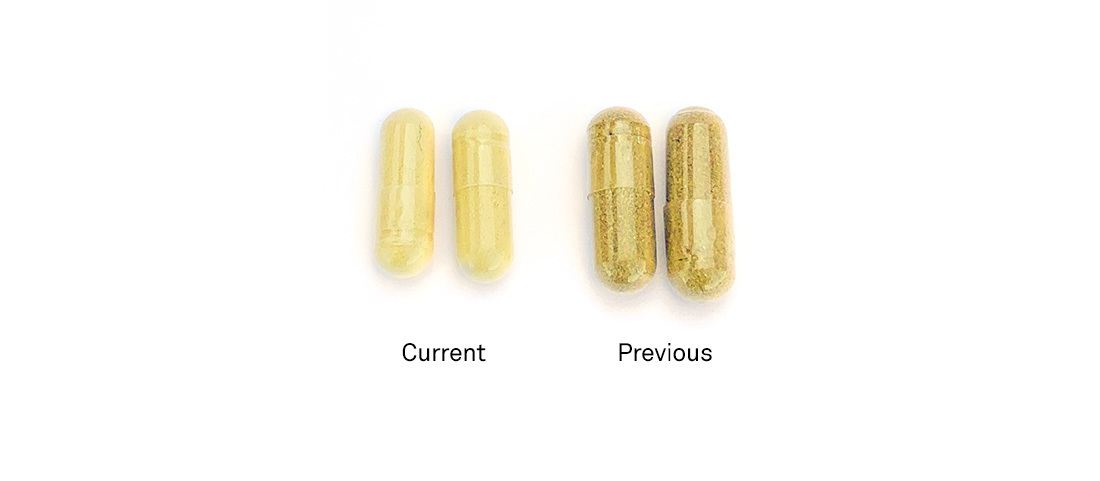
By
NeuroScience
Calm CP – Same Active Formula, Higher Standardization
Calm CP by NeuroScience
Decreases cortisol levels and provides ingredients important for calm, sleep, and management of blood sugar*
- This unique formula includes Banaba leaf that has been standardized to corosolic acid
- Corosolic acid selectively inhibits 11β-hydroxysteroid dehydrogenase 1 (11β-HSD1), which is the enzyme that catalyzes the conversion of cortisone into cortisol (1,2)*
Higher standardization and smaller capsule size
- The standardization of a botanical ensures the concentration of an active ingredient is at a specific desired amount
- A higher concentrated form of Banaba leaf is now being used in the Calm CP formulation blend, replacing 2% with 18% corosolic acid
- Using 18% corosolic acid results in a more concentrated proprietary blend, enabling Calm CP to be offered in a smaller, more convenient capsule size that improves the overall patient experience
- An additional benefit of a smaller formulation blend is less excipients are required to produce the same active formula
Same active formula
- The total active ingredients in the Calm CP formula as well as the amount of Calm CP delivered using 18% corosolic acid is equal to using 2% corosolic acid
Excipient transparency
- Calm CP now contains rice flour as an excipient, an equivalent excipient to magnesium stearate
Aesthetic changes to Calm CP 60ct
- The new 18% corosolic acid capsules are smaller and white in contrast to the previous larger brown 2% corosolic acid capsules
- The capsule size is noticeably smaller than the previous 60ct capsules due to the more concentrated proprietary blend
- The formula will appear whiter than the previous capsules as less excipients are required
- The image above illustrates the visible differences in size and color between the previous and current capsules
References:
- Patel H, et al. Arabian Journal of Chemistry. 2015.
- Rollinger J, et al. Bioorg Med Chem. 2010;18(4):1507-15.
See more:
Product Updates
